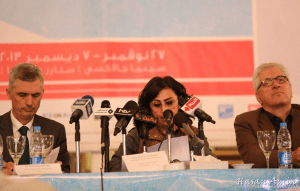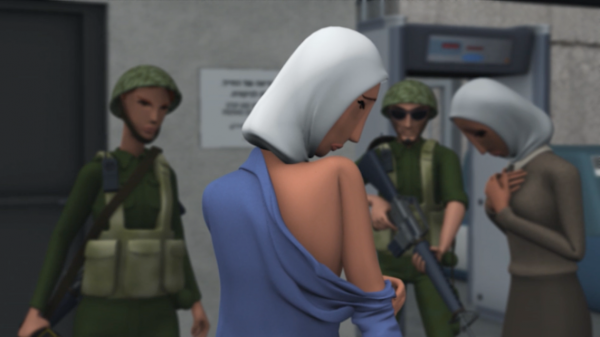European film festival promotes education

BY HANA AFIFI AND NOUR HASSAN
A festival of European films will open on Wednesday, reflecting cultural cooperation between Misr International Films (MIF) and the European Union (EU) Delegation to Egypt that funds the festival, through uncensored films.
“We believe that cinema should remain a constant presence in the cultural fabric of society, and particularly during dire political times, serve as a medium for expression and an art form of resistance,” said Marianne Khoury, founder of the Panorama of the European Film Festival and co-manager of MIF at a press conference that marked the launch of the festival Sunday.
The Panorama of the European Film will showcase European and Arab feature films, documentaries and short movies. This year marks the sixth edition of the Panorama, which was founded in 2004.
Deputy Chair of the EU Delegation to Egypt, Reinhold Brender, said the EU supports the Panorama as a cultural manifestation, because they believe in cultural cooperation.
“The diversity of the Panorama is the diversity of Europe,” said Brender, adding that the EU wants to help diversity; especially because U.S. and Egyptian movies dominate the market.
The festival includes five main categories aimed at an audience of all ages, said Menna El Laithy, MIF’s communications director. “This year, the Panorama will take place for 10 days with a focus on education cinema,” she added.
“Education and Cinema” is a section at the Panorama that invites students from schools in Greater Cairo to watch movies in order to encourage critical thinking.
“This program aims at nurturing their passion for cinema and also intends to teach this young generation the virtues of debate, artistic and critical thinking in an ever changing Egyptian landscape,” said Khoury.
Teachers from local, public and international schools will be provided with training workshops on how to use cinema in education as a visual method of learning. Students will also have the chance to attend debates by Egyptian and European filmmakers following the screenings.
Jamil Maleyran, director of Lycée Francais du Caire, the French embassy’s school in Egypt, explained at the press conference that the students at his school would work on their curriculum along with the movies. He added that the chosen movies have literary and linguistic dimensions.
“‘Education and Cinema’ is just a drop in the ocean,” said Khoury, adding, “There is a lot to be done with school students; this is only a beginning.”
The festival’s main category, “European Cinema,” will showcase award-winning films screened in festivals like Cannes, Venice and Berlin.
The Panorama incudes 50 European films from 14 EU countries as well as Norway and Iceland. This year, the festival focuses on Nordic films – from Denmark, Norway and Iceland – but there are movies from East and West Europe, and the Mediterranean, said Khoury.
“Apart from our annual core European section, we have given increased importance to emerging international filmmakers to share their work with audiences and interact with local filmmakers,” said Khoury.
“Emerging directors” is the category that will offer debuting directors an opportunity to present their work to a wide range of audience.
The Panorama also includes a “Documentary Rendez-Vous” section that will showcase documentaries from Europe and the Arab world.
“Short Films” concerns Egypt in particular; it consists of five short films portraying the reality of life for women in Egypt. It is a result of “Women in New Egypt” project, a collaborative venture between MIF and the British Embassy.
“‘Panorama Classic’ is a tribute to the most influential directors who made cinema history,” said Khoury. She added that movies from the 50’s that have been restored to meet the standards of modern day digital projection would be showcased in this category.
“Screening independent and uncensored films is a small way to fight for a space where unconventional voices and ideas are cherished instead of scolded,” said Khoury.


